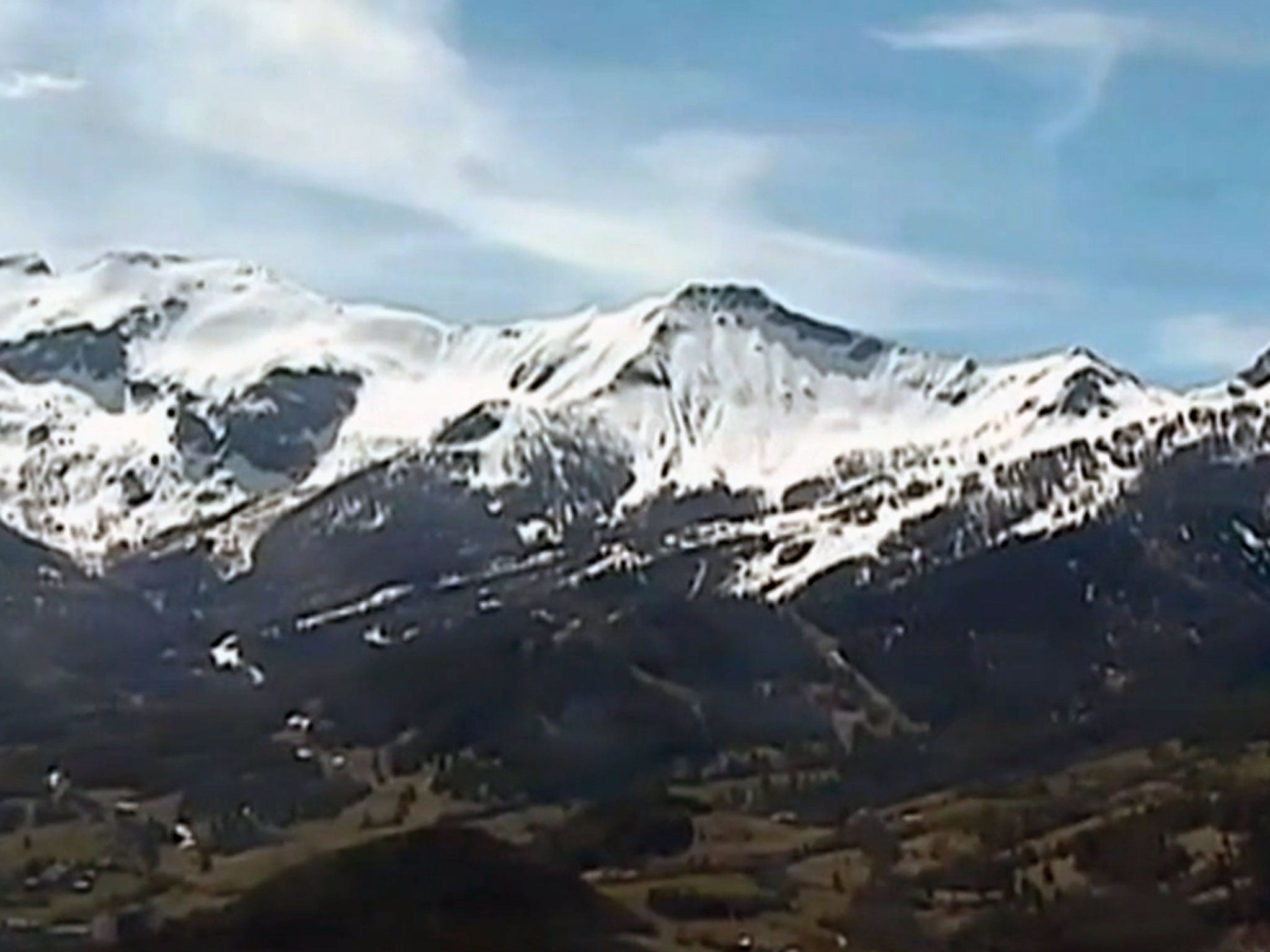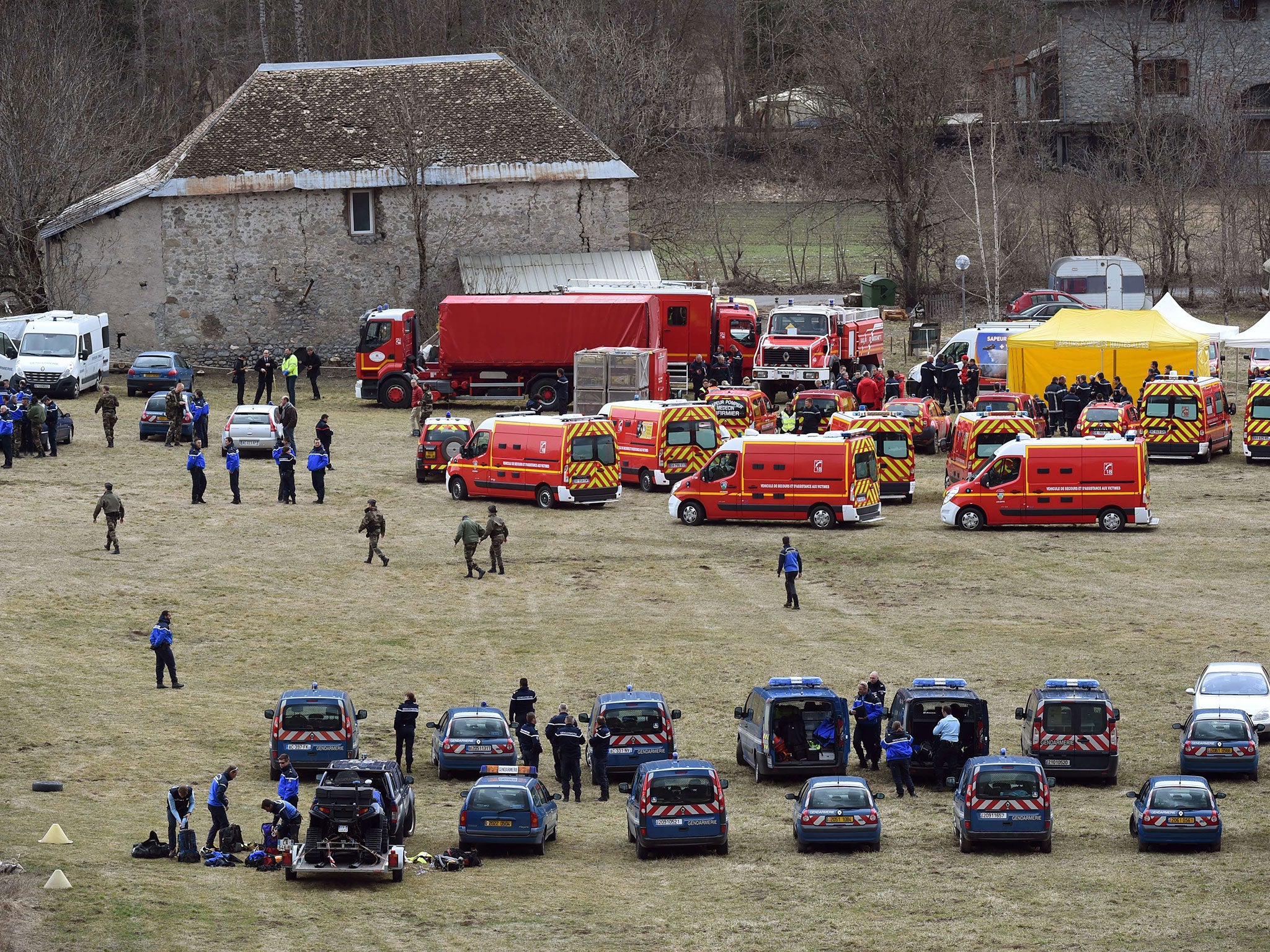Germanwings French Alps crash: Why did doomed Airbus A320 descend for eight minutes without issuing distress signal?
Officials say there remains confusion over the final moments of the lost plane, which was carrying 150 people when it came down in southern France

Airline officials say confusion continues to surround the final moments of the Germanwings Airbus A320 that crashed in the French Alps on Tuesday morning.
All 150 passengers on board the plane are feared dead, as reports from the crash site suggest it could take “days” to recover the bodies of victims from an area of debris spanning kilometres.
President Francois Hollande has said there will be a full investigation into what caused the plane to plummet into the side of a mountain in a remote region 100 miles north of Nice, calling it “a tragedy on our soil”.
French Prime Minister Manuel Valls said that search teams had managed to land near the site but found no survivors, adding that there were no indications as to what caused the crash.
Last moments of the plane
Speaking in Cologne, Germanwings CEO Thomas Winkelmann revealed that the plane began descending shortly after it reached cruising height following take-off from Barcelona airport.
10.01am CET Flight 4U 9525 takes off
10.44am Plane reaches cruising altitude
10.45am Plane begins unexplained descent
10.47am Air traffic controllers issue ‘third phase’ distress call
10.53am Radar and radio contact breaks off
A long descent
According to Mr Winkelmann, the plane started to descend very shortly after it reached its cruising altitude – and continued to do so for eight minutes until it crashed into the mountain at an altitude of some 5,000ft.
He said there was no explanation for why this descent from 38,000ft began, but said the 24-year-old plane was checked the day before the flight and that the captain on board was very experienced, with more than 10 years’ service and 6,000 hours of flying time.
Was there a distress signal?
France's aviation regulator has said that the plane “did not itself make a distress call” during its eight-minute descent from cruising altitude.
While Germanwings’ Mr Winkelmann said there was still some confusion as to whether a distress signal had been sent from the plane, the DGAC authority said that controllers on the ground issued the “distress” call – the third and most serious of three stages of alerts used to help coordinate rescue efforts when an aircraft is considered in difficulty.
“The combination of the loss of radio contact and the aircraft's descent which led the controller to implement the distress phase,” a spokesman said.
Why no word from the cockpit?
The fact that there was seemingly no distress signal issued by the pilots themselves does not necessarily tell us much about what was going on in the cockpit at the time.
Speaking in London, aviation expert Mary Schiavo told CNN that a sudden disaster that disabled the crew, like rapid decompression, was just one of a number of possible explanations.
“[The fact there was] no distress call would explain why the pilots didn’t turn back for other airports or veer from the course that was heading straight for the mountains,” she said.
“[But] with no distress call we don’t know what the pilots knew, what the plane was doing and we don’t know the emergency.
“There are a lot of different scenarios [that involve] no distress call and that explain why they continued to descend into the Alps,” she added.
Another analyst, David Soucie, told the broadcaster that the very act of putting out a distress signal takes some concentration and time and would not necessarily be “the priority” for pilots struggling with an emergency situation.
Did the plane crash in a storm?
UK meteorologists have said they expect bad weather to be ruled out as a cause for the crash at an early stage in the investigation.
Though it is mountainous, there were no significant storms reported in the area.

Dr Rob Thompson, from the University of Reading, told Sky News: "The weather conditions in the area of southern France where the crash is reported to have occurred look like nothing out of the ordinary for this time of year."
What about terrorism?
While there has been little word on the possibility that the crash could be a terror attack in France or Germany, the US has been quick to rule it out as a likely cause.
White House national security spokeswoman Bernadette Meehan told Fox News: "There is no indication of a nexus to terrorism at this time."
Join our commenting forum
Join thought-provoking conversations, follow other Independent readers and see their replies
Comments
Bookmark popover
Removed from bookmarks